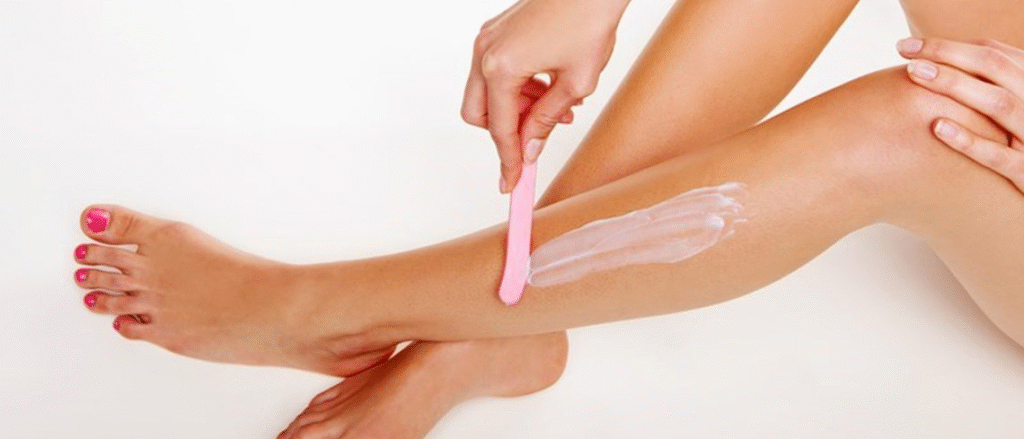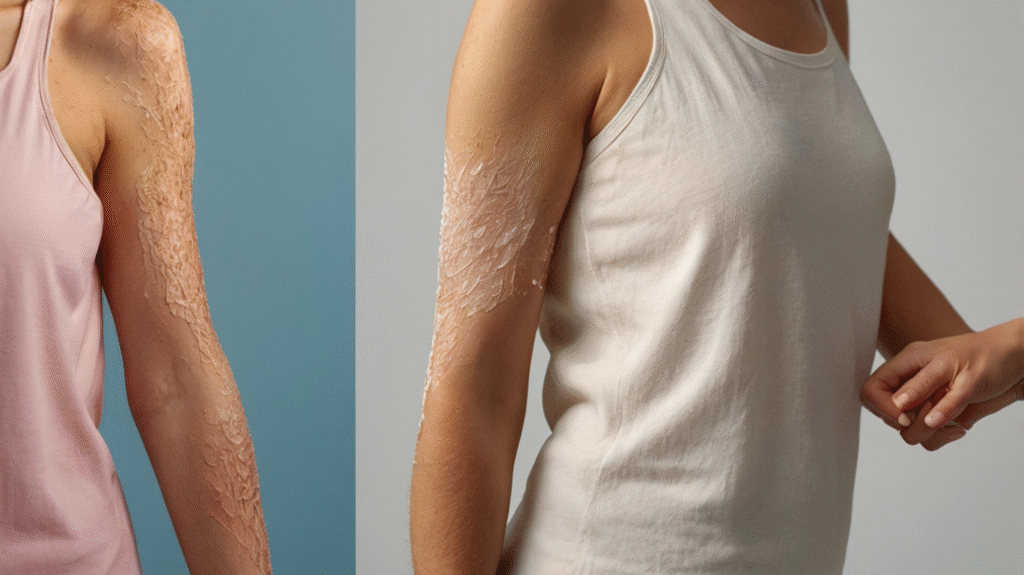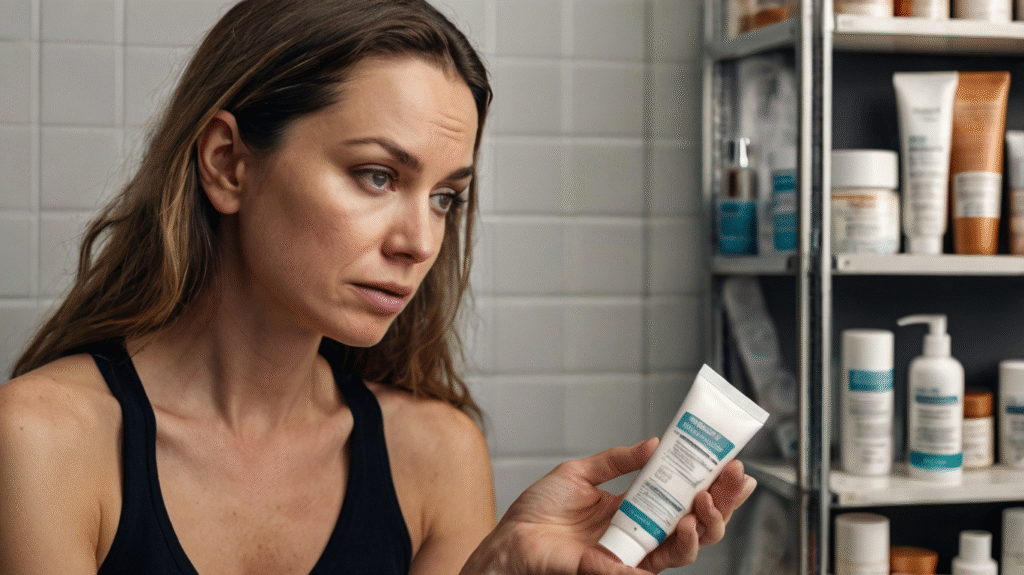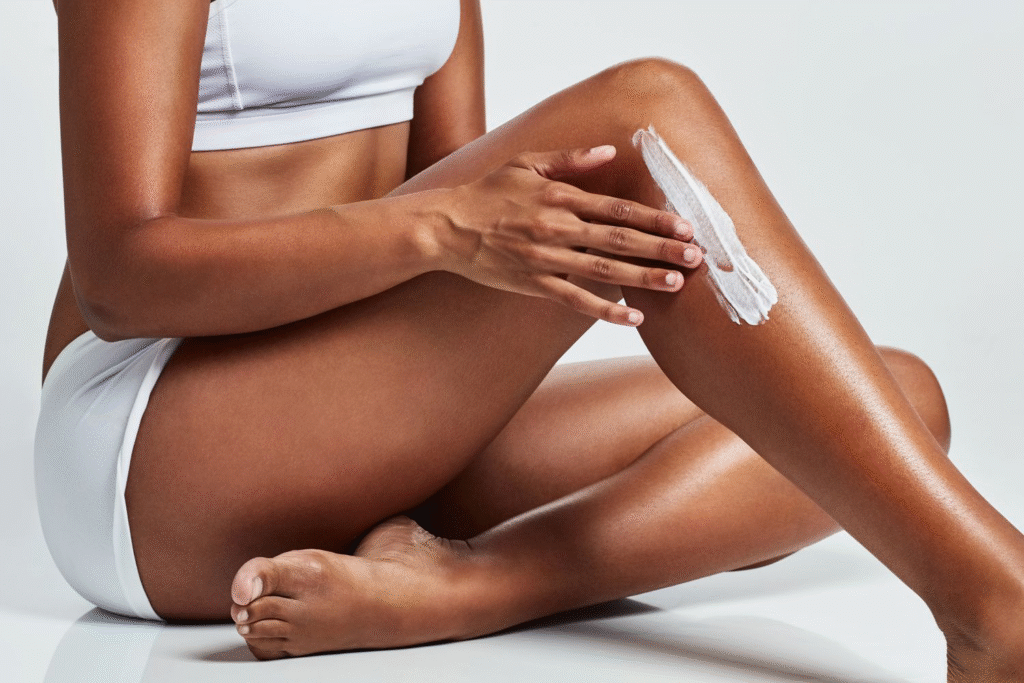What Are Hair Removal Creams and How Do They Work?

Depilatory creams, or hair removal creams, dissolve the hair beneath your skin’s surface. They dissolve the protein structure of hair by using active ingredients such as calcium thioglycolate and potassium hydroxide so they can be easily wiped away.
Since they don’t pull hair out of the root (as waxing does), regrowth occurs in a few days. But what is going on beneath the surface with repeated use of these depilatory creams?
The Science Behind Repeated Use of Hair Removal Creams:
If you use hair removal creams frequently, your skin is repeatedly subjected to harsh alkaline substances. These chemicals do change the pH of your skin for a short period, which might result in dryness or irritation on some people’s skin.
For people with sensitive skin or pre-existing conditions such as eczema or rosacea, prolonged exposure to chemicals can exacerbate inflammation or trigger flare-ups. Even if an immediate reaction isn’t apparent, your skin barrier will degrade with repeated use of hair removal creams over time.
Short-Term Benefits vs. Long-Term Effects:

In the short term, hair removal creams are a fast, painless way to eliminate unwanted hair. They’re particularly favored for arms, legs, and even the bikini line. But regular use over months or years is cause for concern.
With time, the repeated exposure to chemicals can result in:
- Skin thinning
- Discoloration or hyperpigmentation
- Increased sensitivity or allergic contact dermatitis
- Compromise of skin barrier function
Though numerous brands create creams for “sensitive skin,” they don’t protect in the long run. Your skin can develop a delayed sensitivity, and that will not become apparent until harm is caused.
Are Natural Hair Removal Creams Safer?
Recently, there has been a popularity explosion for “natural” or “organic” hair removal creams, which frequently contain aloe vera, vitamin E, chamomile, or green tea extracts. Although these substances can soothe the skin, the depilatory action in these products is still based on chemical agents to liquefy hair.
Just because the label yells “natural,” the product still has active ingredients that will stress your skin out in the long run. So, while they might feel less harsh, long-term use still needs caution and moderation.
What Dermatologists Say About Long-Term Use:
Most dermatologists agree that occasional use of hair removal creams is safe for healthy skin. However, they caution against daily or weekly application over extended periods—especially on sensitive areas like the face or bikini line.
Professionals often recommend rotating between different hair removal methods to reduce the risk of chemical overexposure and always performing a patch test—even if you’ve used the product before.
The takeaway? Use hair removal creams judiciously and strategically for the best long-term results.
Who Should Avoid Hair Removal Creams Completely?

Hair removal creams are not for everyone. You should avoid them if you:
- Have broken or irritated skin
- Are susceptible to allergic reactions
- Have chronic skin ailments such as eczema or psoriasis
- Are pregnant (talk to your doctor first)
- Suffer from burning, redness, or itching after application
If any of the above describes you, the extended use of hair removal creams may be more damaging than beneficial.
What's in the Ingredient List—and Why It Matters:
Take a look at the back of the bottle. Typical ingredients in hair removal creams are:
- Calcium Thioglycolate: Dissolves keratin in hair
- Potassium Hydroxide: Facilitates dissolving of hair structure
- Fragrances and preservatives: Irritate sensitive skin
- Mineral oils or moisturizing agents: For softening skin after use
While the FDA deems these products safe to use as directed, extended use equates to multiple exposures to potentially aggravating chemicals on thinner skin surfaces such as the face.
How to Use Hair Removal Creams Over Time Safely:

If you like the convenience of hair removal creams, you may still use them smartly with these tips:
- Limit Frequency—Give your skin time to recover between uses.
- Moisturize Daily—Support your skin barrier with a fragrance-free lotion.
- Use Different Methods—Alternate with shaving or waxing occasionally.
- Avoid Sensitive Areas—Don’t use them around eyes, on genitals, or over broken skin.
- Do patch tests—even if you’ve used the product before.
These routines will make your long-term experience with hair removal creams safer and reduce the cumulative damage.
Advantages and Disadvantages of Long-Term Use:
Advantages:
- Convenient to use at home
- No pain factor
- Inexpensive and fast
- Good for wide surfaces such as legs or arms
Disadvantages:
- Chemical buildup risk
- Frequent use causes skin irritation
- Risk of discoloration with regular use
- Not suitable for using on the face in the long term
Final Thoughts: Should You Use Hair Removal Creams Long-Term?
Hair removal creams offer a great short-term solution. They’re painless, affordable, and accessible. But when it comes to long-term safety, the answer is more nuanced. Like most cosmetic products, moderation is key.
If you like the smooth finishes and want to continue using them, simply be aware of how frequently, where, and what type you’re putting on. Your skin is a living, breathing organ—treat it as much as you would like it to appear good.
FAQs:
It’s not advisable to use them weekly on a continuous basis. Let your skin heal to prevent irritation or damage.
It is relative to your skin type. Creams prevent razor cuts but can trigger chemical reactions. Shaving will irritate delicate skin but prevents chemical exposure.
There’s no long-term skin damage from hair removal creams.
With overuse, yes. Conditions such as dryness, sensitivity, or hyperpigmentation can occur.
Always speak to your doctor. Some ingredients may be absorbed into the skin and are not widely studied during pregnancy.